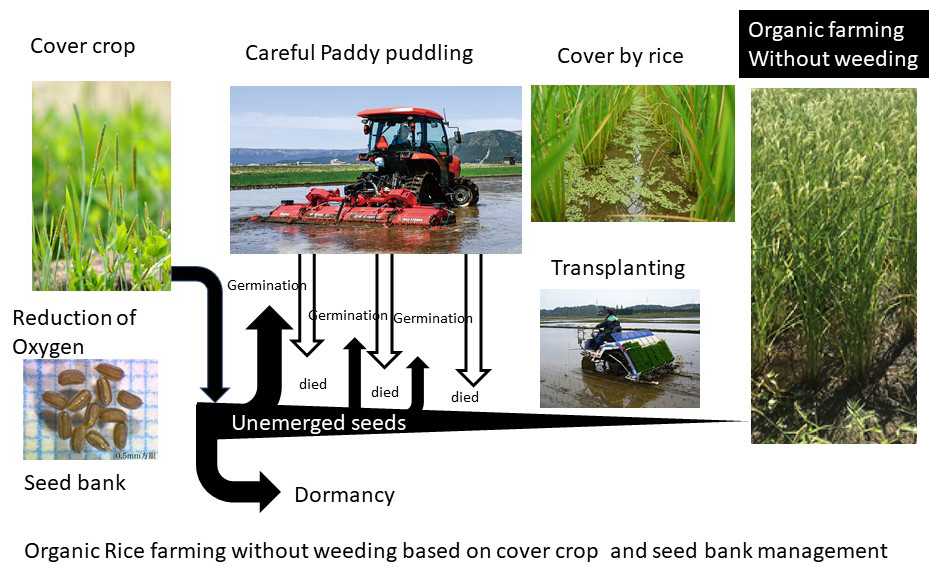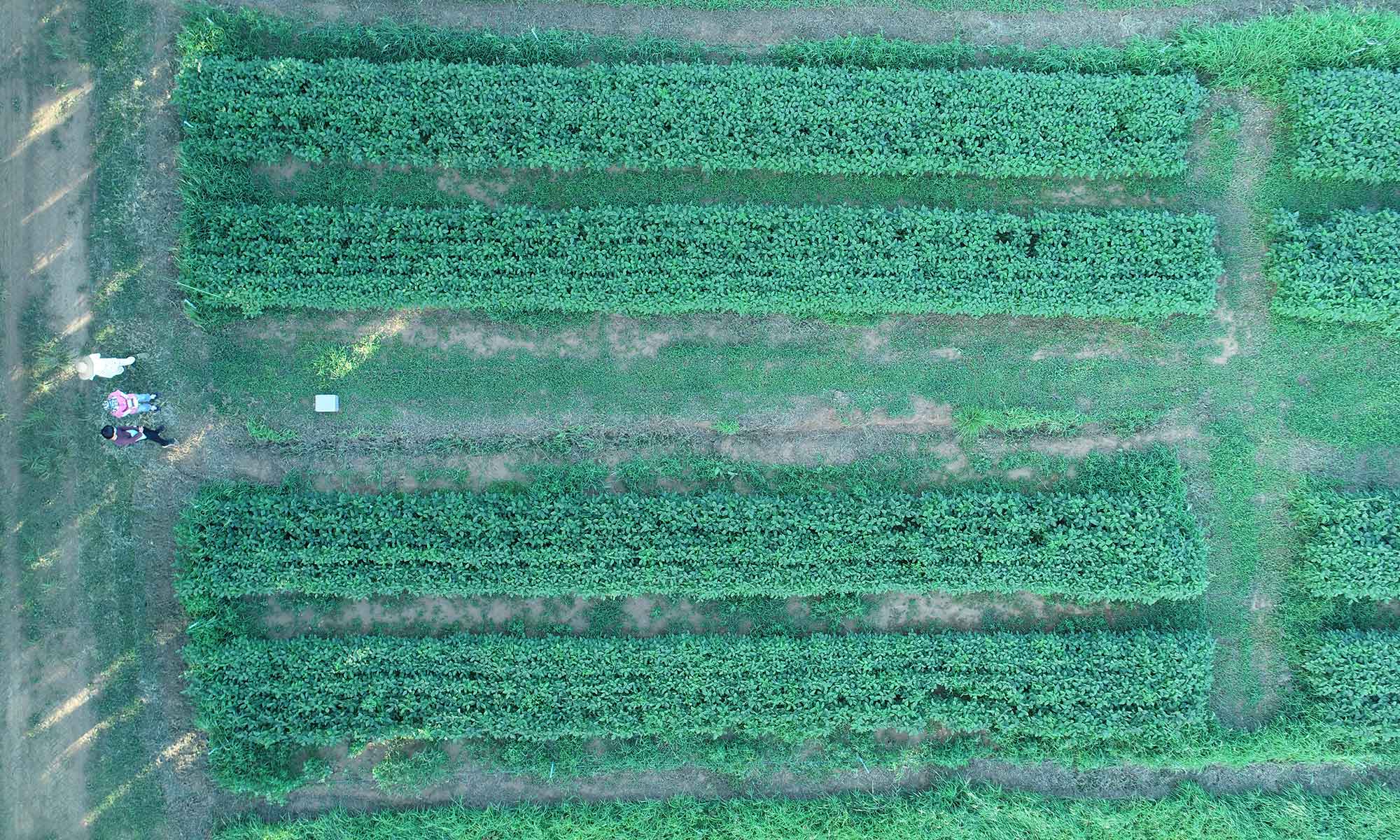Agroecology for sustainable farming and environmental conservation
Topic 1.
Long term experiment of Cover crop and tillage system for sustainable production
This study examined the relationship between tillage systems and cover crop management and their effect on soil organic carbon, global worming potential and soil health. This study was conducted from October 2002 to Now at the Center for International Field Agriculture Research and Education, Ibaraki University, Japan. The field experiment design was split-plot, with the first main factor was being tillage (no-tillage; no-till, moldboard plow; plow, and rotary cultivator; cultivator), and the second factor was being winter cover crop (fallow, hairy vetch, and rye). The latest results suggested that NT with cover crop systems—especially RY cover crop—in the long-term organic soybean field maintains sustainable crop production and reduces net GWP and yield-scaled GWP, which will be an effective climate-smart agriculture practice in the humid, subtropical regions prevailing in Kanto, Japan.

image 1
Topic 2.
Organic No-till vegetable production using robotic mower and endophyte
Abandoned agricultural land could potentially accumulate soil organic carbon when it is no longer used for cultivation and is allowed to revert to natural vegetation. In Japan, no tillage with weed mulching will be adopted in marginal farmland as a new organic farming system because this system minimizes the disturbance of the soil ecosystem and reduces the cost for crop production. This study aimed to compare the effects of two organic farming systems, no-tillage with weed cover mulching and conventional tillage from 2010 to now. In addition, robotic auto mower and endophyte are also applied to the farming system.

image 2
Topic 3.
New organic rice production system using cover crop
Organic rice production in general required intensive labor to eliminate the weeds during rice growing season, however, one innovative grower has succussed to develop the new organic farming system that eliminate any weeding works during rice growing season. This farming system provides really delicate soil management using cover crops or winter weeds in off season managements. We try to introduce this farming system in the university farm based on the scientific knowledge.

image 3
Topic 4.
Utilization of drone for organic and conservation farming
Utilization of drone are widely adapted in farming recently. We evaluate the crop growth and yield using drone sensing images, and adapt to farming works such as, seeding and spraying to reduce the labor works. For organic farming, especially, drone techniques are not adapted current now, therefore, our lab has started organic drone project to develop the regenerative organic farming system.

image 4
Topic 5.
Horticulture therapy and faming for well-being
As health promoters, community garden show benefits in many aspect including wellbeing and health. Community’s food security, therapeutic landscape and increasing social activity are often discussed as benefit of community garden. Community gardens can help to overcome food desert problems for mature and inner-suburban neighborhoods by giving participant to access fresh foods, and increase vegetable and fruits consumption. Community gardens were found to be therapeutic experiences. The aims of this study are to determine psychological and physical effect of collaboration among people with mental disabilities and people without disabilities in the community gardens.

image 5
